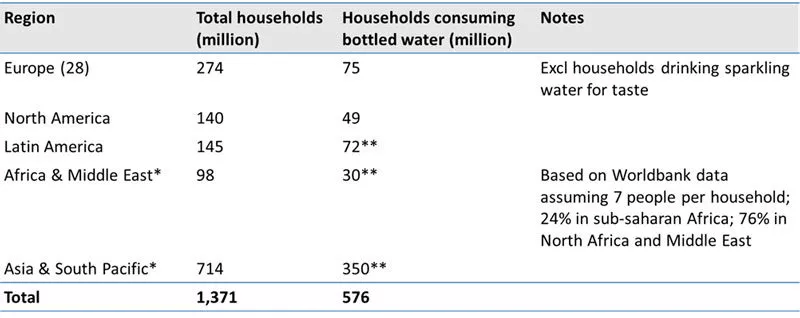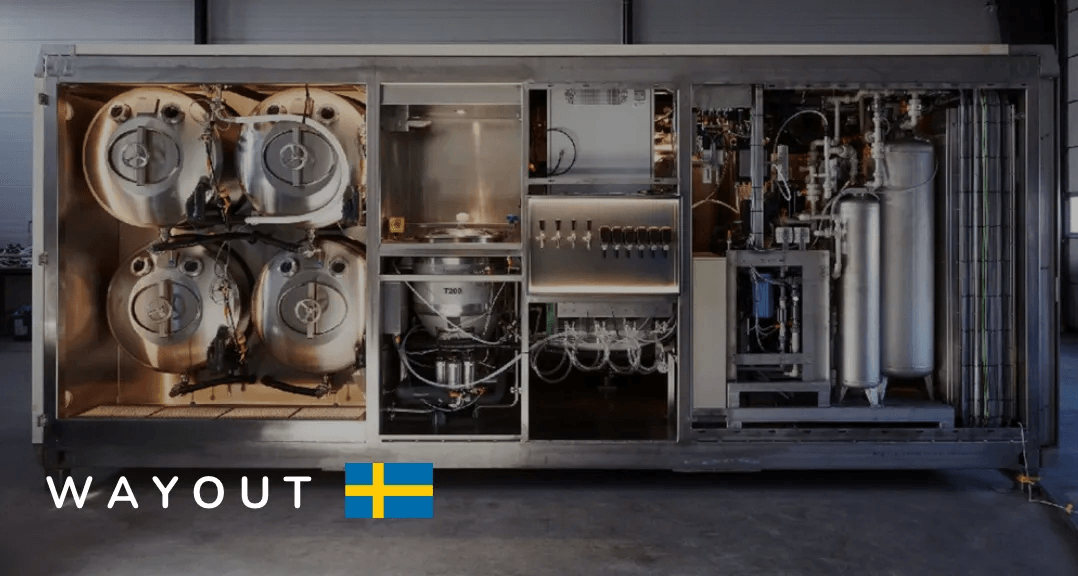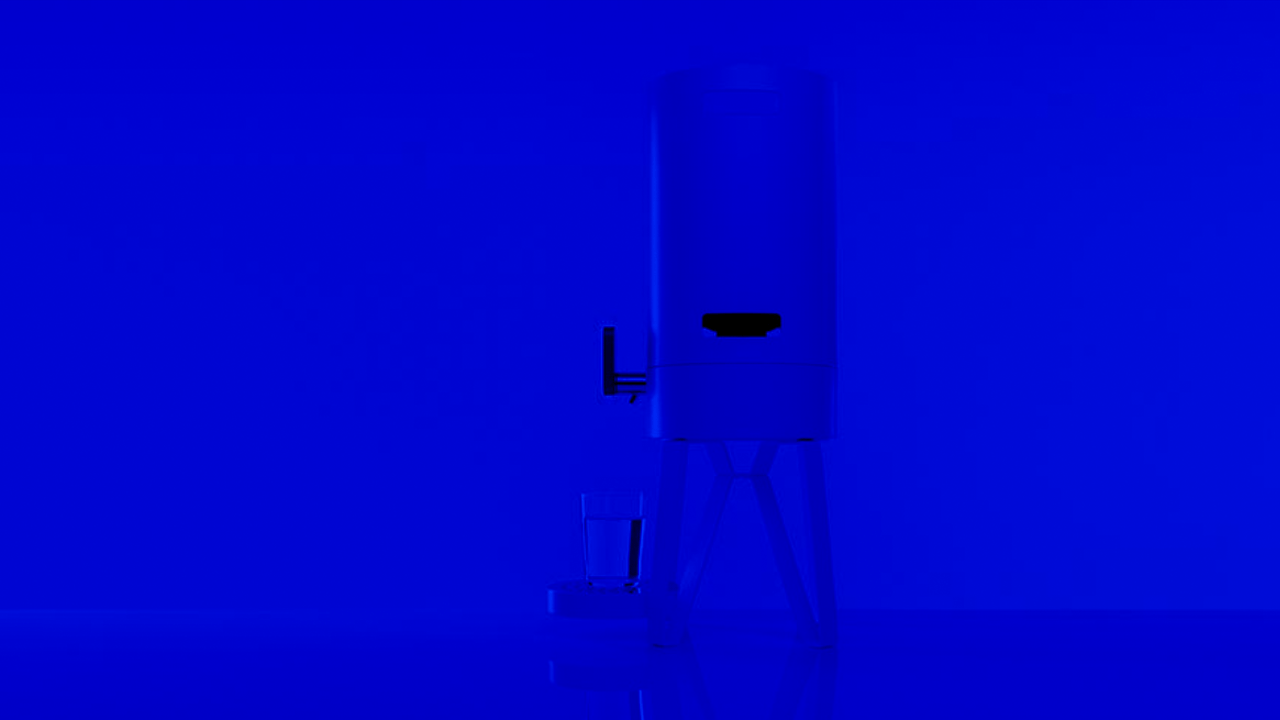Stockholm-based water-as-a-service provider Wayout has raised €6 million in a Series A funding round that will see the company further ramp up production of its container-sized water treatment facility, press forward with international expansion plans, and support a sustained recruitment drive.
Wayout’s €6 million Series A round was led by Copenhagen-based impact fund Climentum Capital with foodtech investor Re:Food, and Raiven Capital participating.
To understand what Wayout’s mission is is nothing short of understanding the survival of the human race. With 60 percent of our body composed of water, it’s a fair statement to make that perfect drinking water should be a human right. And while water covers about 71 percent of the earth's surface, only 3 percent of the earth's water is freshwater, a mere 0.5 percent of this freshwater is available for consumption, and the remaining 2.5 percent is either locked up in glaciers, polar ice caps, atmosphere, and soil; highly polluted; or lies too far under the earth's surface to be extracted at an affordable cost.
Given these facts, it should come as no surprise that since 1622, we humans have been bottling water in one place and transporting it, sometimes vast distances, to other locations. However, in 1973, when DuPont engineer Nathaniel Wyeth patented Polyethylene terephthalate (PET) bottles, did the troubles of plastics and water began leaving their mark.
Fast forward to our modern day and age, and statistics from a semi-distant 2018 survey reveal some shocking numbers.

While these figures account for water consumption, let’s assume that each household consumes about 2 bottles per day on average. This then means 576 million x 365 = 210 billion bottles per year. This aligns pretty well with the estimate of a total of 480 billion plastic bottles consumed annually, 50 percent of which are filled with nothing but potable water.
Breaking that down even further, to produce this amount of plastic, a process that also involves the production of chemicals including benzene, toluene, styrene, and phthalates, 17 million barrels of oil are required each year.
Now let’s also factor in that the manufacturing and distribution of these bottles involve over 40,000 lorries, say nothing of cargo planes and ships that transport clean, drinkable water further afield.
And then there’s that “other” gigantic body of water(s) all around us we lovely refer to as oceans. One that plays home to the infamous Great Pacific Garbage Patch, the largest gyre, or axes that ocean currents revolve around, located between Hawaii and California, covers 1.6 million square kilometers, an area twice as big as Texas. It’s estimated that it contains 1.8 trillion pieces of plastic, weighing almost 90,000 tons.
In case you’ve not already picked up what I’m laying down, plastic is a problem pressing beyond comprehension.
So what’s to be done? Well, this is where startups like Wayout are starting to make their mark. First step? Curtailing the production of plastic water bottle production and shipping by offering local communities access to container-sized water treatment facilities, thereby turning local dirty water into safe, drinkable water.
While this might not be a pressing problem in your or my backyard, if you’ve ever been to a developing country, you’re well aware of the dire need for such a solution.
Wayout's systems, patented and developed in conjunction with Alfa Laval, Siemens, and Ericsson, are reportedly easy to install and operate and Wayout projects expected unit shelf lives of approximately 30 years.

According to the company, a single Wayout system can supply 2,000 people with clean and safe daily drinking and cooking water with zero byproducts while helping to eliminate the use of approximately 6.5 million plastic bottles and prevent the release of over 500 tons of CO₂ per year.
Through a combination of edge and cloud-based structures, the container and its parts communicate essential information and consumption data to the user and operator, allowing users to monitor their water drinking habits and the purity of the water consumed.
The unit is capable of converting anything from saltwater to industrial wastewater into pure H₂O, and then adds minerals to provide healthy, life-sustaining, water.
On the investment, Climentum Capital’s Malin Carlström commented, “Shipping around water via fossil fuel driven vehicles in fossil-based containers makes absolutely no sense. With the Wayout system, there is a guarantee that the water has not been tampered with, which is an essential criterion in order to enable consumer behavior change. We are also very fond of the “Water as a Service” business model in conjunction with the robustness of the system, as these are two factors that will enable a successful and profitable roll-out on a large scale.”



Would you like to write the first comment?
Login to post comments